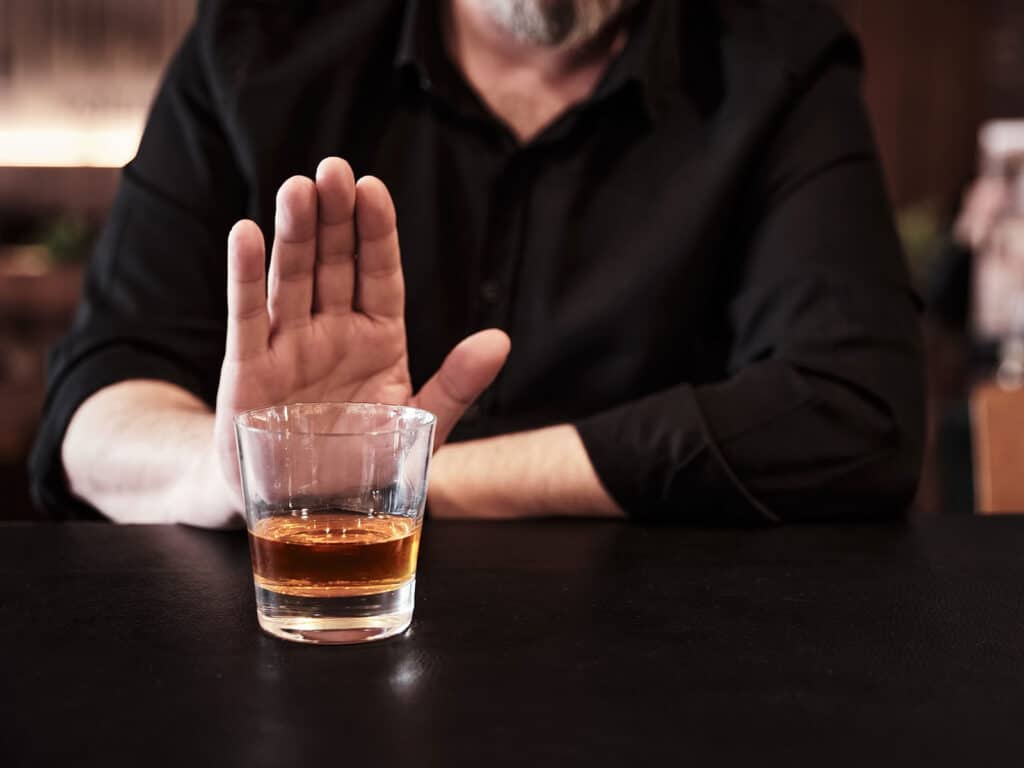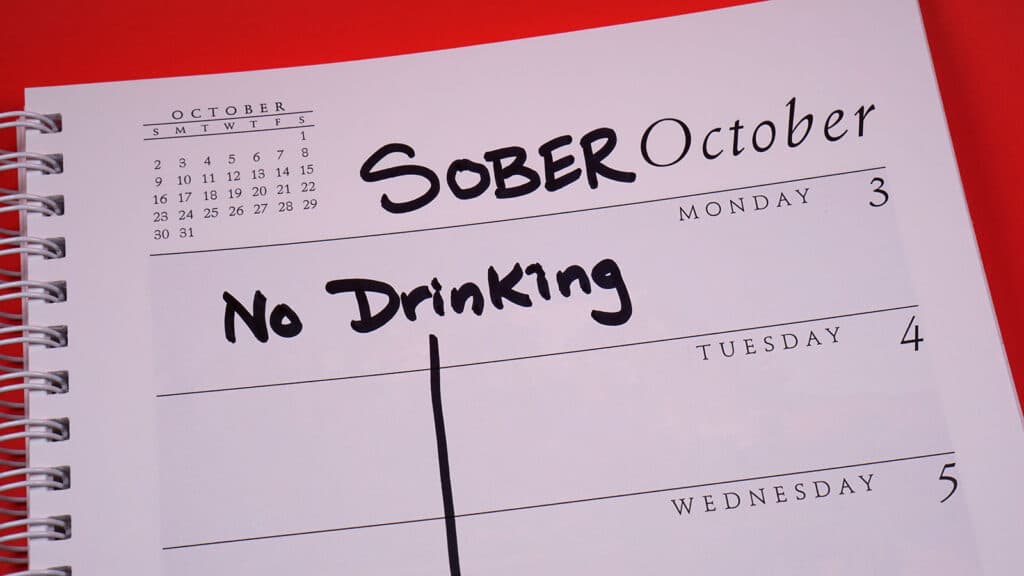The terms “clean” and “sober” are used interchangeably in the drug addiction recovery community. But this shouldn’t be the case.
Both words refer to the person who stopped using drugs, the two aren’t synonyms, however. Each of them describes a distinct condition.
We can say that every sober person is clean, yet the opposite isn’t necessarily true. In other words, not every clean person will end up sober.
Sobriety requires more than abstaining from drug use. It involves making major lifestyle shifts and developing coping mechanisms for the recovered person. What else?
In this article, we’ll break down the difference between sober vs. clean, and remove the confusion around the two terms.

Table of Contents
- 1 What Does Being “Clean” Mean?
- 2 How to Tell if Someone Is Clean?
- 3 Who Is Considered Sober?
- 4 How to Tell if Someone Is Sober?
- 5 Clean vs. Sober: A Zoom-In on the Differences
- 6 Why Can’t a Clean Person Reach Sobriety?
- 7 How to Treat Addiction and Achieve Sobriety in New Jersey?
- 8 Eager to Kick-Start Your Recovery Journey?
- 9 References
What Does Being “Clean” Mean?
A “clean” person is someone with a previous addiction, who has stopped using drugs or alcohol in the short term. They become “clean” when they complete the initial steps in the detox process.
In this stage, the chemical compounds of drugs no longer exist in their system. In other words, they don’t experience high cravings for the substance.
How to Tell if Someone Is Clean?
Based on the above definition, here are some signs to tell that someone is clean:
- They haven’t used any addictive substance for some time, a month or so.
- They no longer keep addictive substances in their home or anywhere within their reach.
- They avoid the situations, places, and people that stimulate the urge to use the substance.
Who Is Considered Sober?
The word “sober” refers to a person who has made a considerable change in their lifestyle after quitting a substance.
This person will first complete the detoxification phase to remove the substances from their system.
Then, they should make notable changes in the physical, emotional, and social aspects of their life.
Here’s a detailed description of these changes:
Physical Sobriety
We can say that a person has achieved physical sobriety when their body is free from addictive substances.
Still, the recovery period should be long enough to allow their brain to regain balance, think clearly, and make important decisions.
Social Sobriety
Being socially sober means that the person resolves most of the problems in their relationships that happened as a result of addiction.
At this point, the person can re-enter society and interact naturally with the people around them.
Emotional Sobriety
A person is emotionally sober when they accept themselves and their history as is.
They also should be willing to take action to correct the mistakes they’ve made in the past as much as possible.
In addition, they need to make meaningful connections with others and build rapport with them.

How to Tell if Someone Is Sober?
Based on the definition of sobriety above, the following criteria determine whether a person is sober:
- They haven’t consumed addictive substances for at least a month.
- They’ve built good exercise, diet, and sleep habits.
- They’ve treated or are actively treating their mental health issues.
- They behave positively in their daily life.
- They’re working on their professional and personal growth.
- They’ve taken steps to improve their relationships with family and friends.
- They practice new hobbies and interesting activities regularly.
Clean vs. Sober: A Zoom-In on the Differences
We can summarize the difference between being sober vs clean as follows:
A person who quit drugs but doesn’t actively work on maintaining long-term recovery is clean. The one who quits drugs but actively works on staying away from drug use is sober.
Given that, here’s the problem with being just “clean”:
We all agree that addiction doesn’t only impact the person’s behavior but affects all aspects of their life.
Being clean will fix the person’s addictive behavior, it won’t treat the underlying causes of this behavior, though.
What do you think this means?
As you might’ve thought, a clean person is much more likely to relapse than a sober one.
This is why being clean isn’t sufficient for a good life. You need to take constant steps to reach sobriety and maintain it. The following are some activities that can help you achieve this:
- Joining support groups and building a support network.
- Engaging in continuous education about fighting addiction
- Learning the right techniques to manage stress.
- Attending holistic therapy or counseling sessions
- Making constant changes to your attitude and behavior
Despite being simple, these activities can make all the difference in preventing a recovered person from relapsing.
Why Can’t a Clean Person Reach Sobriety?
As we mentioned earlier, not all “clean” people will end up sober. Actually, some people may not have the intention of being sober in the first place.
They may only quit drugs temporarily before getting back to using them later. Why? The following are some possible reasons a person might be temporarily clean:
- They can’t afford alcohol or drugs currently.
- They might just try to experience what sobriety feels like and whether they can handle it.
- They are trying to mend one of their relationships by making a promise to quit drugs.
- They may have a legal purpose, such as going through a custody hearing.
How to Treat Addiction and Achieve Sobriety in New Jersey?
The road to sobriety starts with an honest recognition of the impact of substance use disorder on your life. Then, you need to make a courageous decision to quit the drug.
When you’re ready to take the actionable steps toward that goal, you should seek the help of medical professionals.
Trusted healthcare providers will guide you through the entire journey to becoming sober. Here are the steps these professionals will walk you through:
Medically-Managed Detox
Recovery from addiction starts with a well-managed detoxification process to flush out the substances from your system.
That’s why medical supervision during drug or alcohol abuse detox is a wise idea.
Medical professionals will help you safely control the withdrawals that will emerge throughout the detoxification process. Most people can’t handle these withdrawals on their own, as they can be highly severe.
The detoxification can take place in an inpatient or outpatient setting depending on your needs.
More importantly, the medical team will provide you with a personalized post-detox treatment plan. They’ll design your roadmap to becoming sober.
Behavioral Therapies
Completing the detox process is just half of the battle. Relapsing is highly likely if you don’t fix the root cause of addiction.
This means you need to treat any underlying mental health issues that led you to develop a drug dependency in the first place.
A trusted healthcare provider will help you make mindset shifts to improve your behavioral health.
They do this by offering you various behavioral therapies to keep you on track toward sobriety. These therapies include one or more of the following:
- Cognitive behavioral therapy
- Dialectical behavioral therapy
- Family therapy
- Group therapy
- Adventure therapy
- Individual therapy
They’ll also help you join support groups to connect you with people who share the same goal. This will encourage you to progress with your recovery process.
Eager to Kick-Start Your Recovery Journey?
Do you or your loved one want to step out of the devastating addiction zone? Garden State Treatment Center is here to help.
We acknowledge that each patient is unique and requires a highly tailored plan matching their needs.
Our medical team will assess your addiction condition to provide you with the most suitable treatment plan.
They’ll also guide you throughout the recovery program from the first to the last day.
Ready to take the safest route to a sober life? Contact us now and let’s do it together.
References
- https://americanaddictioncenters.org/sobriety-guide/scared-sober
- https://www.verywellmind.com/how-to-go-out-when-you-re-quitting-drinking-4788307
- https://www.scientificamerican.com/article/the-nuts-and-bolts-of-emotional-sobriety/https://www.webmd.com/mental-health/addiction/tips-stay-sober
Published on: 2024-06-11
Updated on: 2025-01-01



